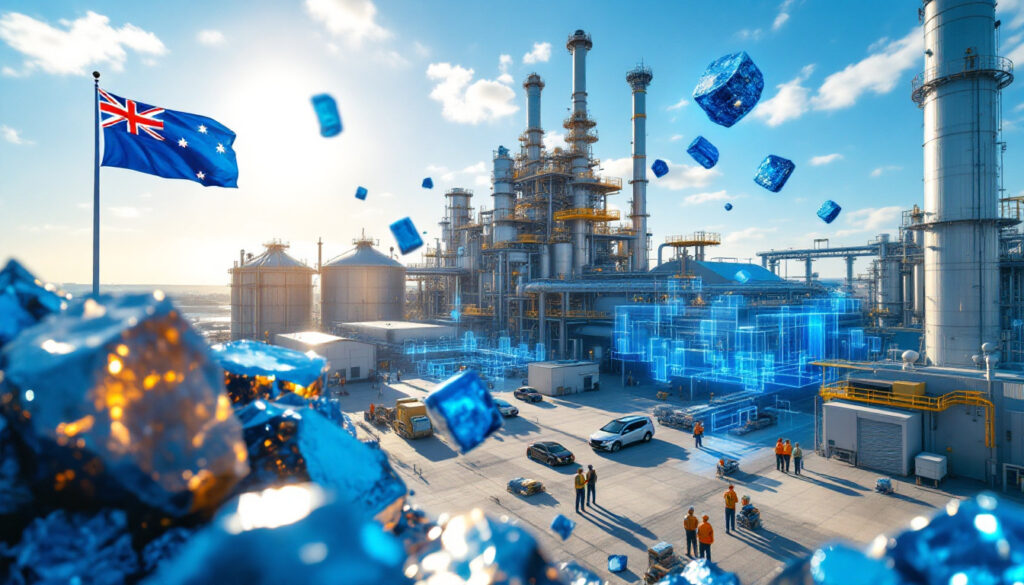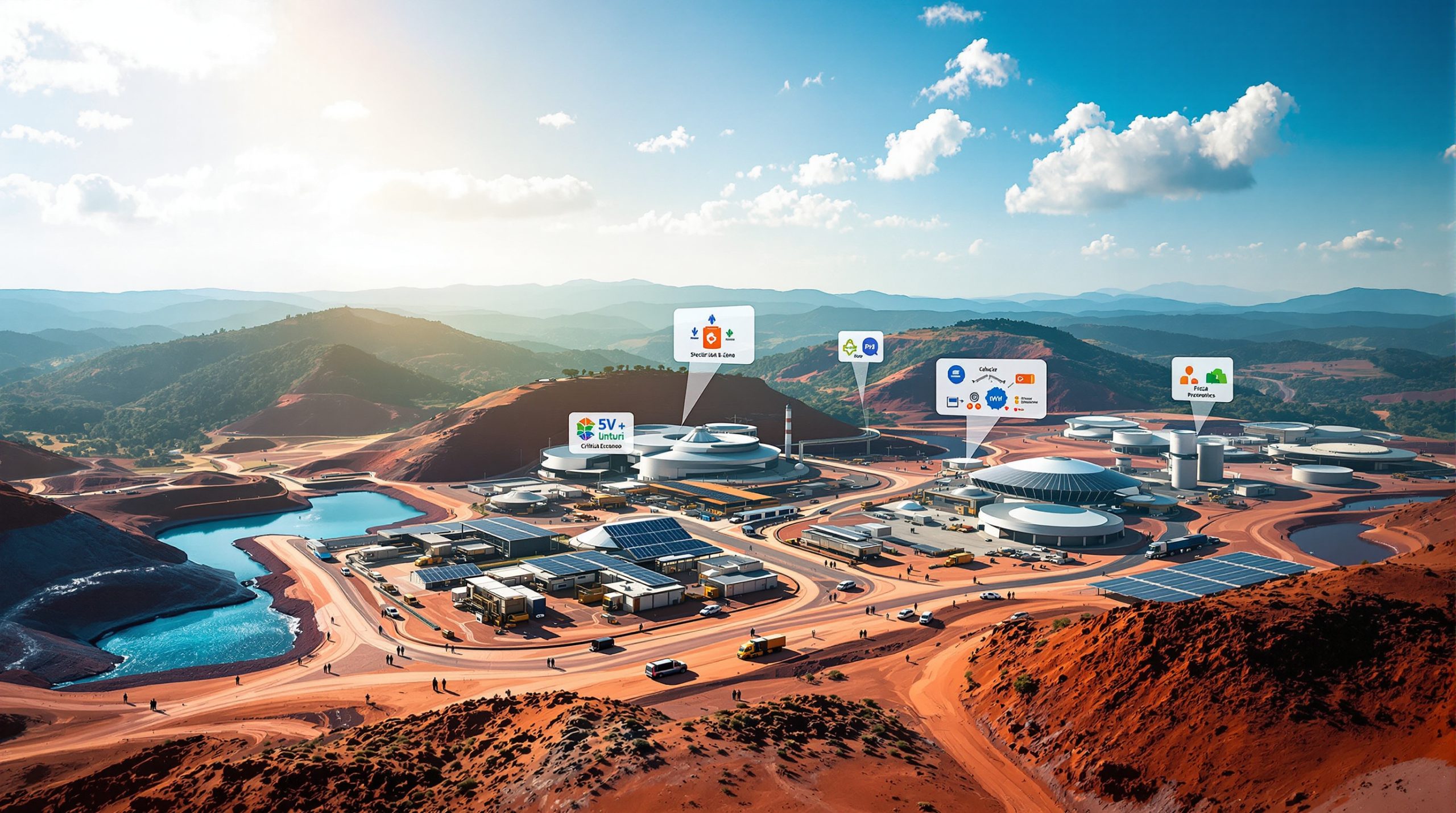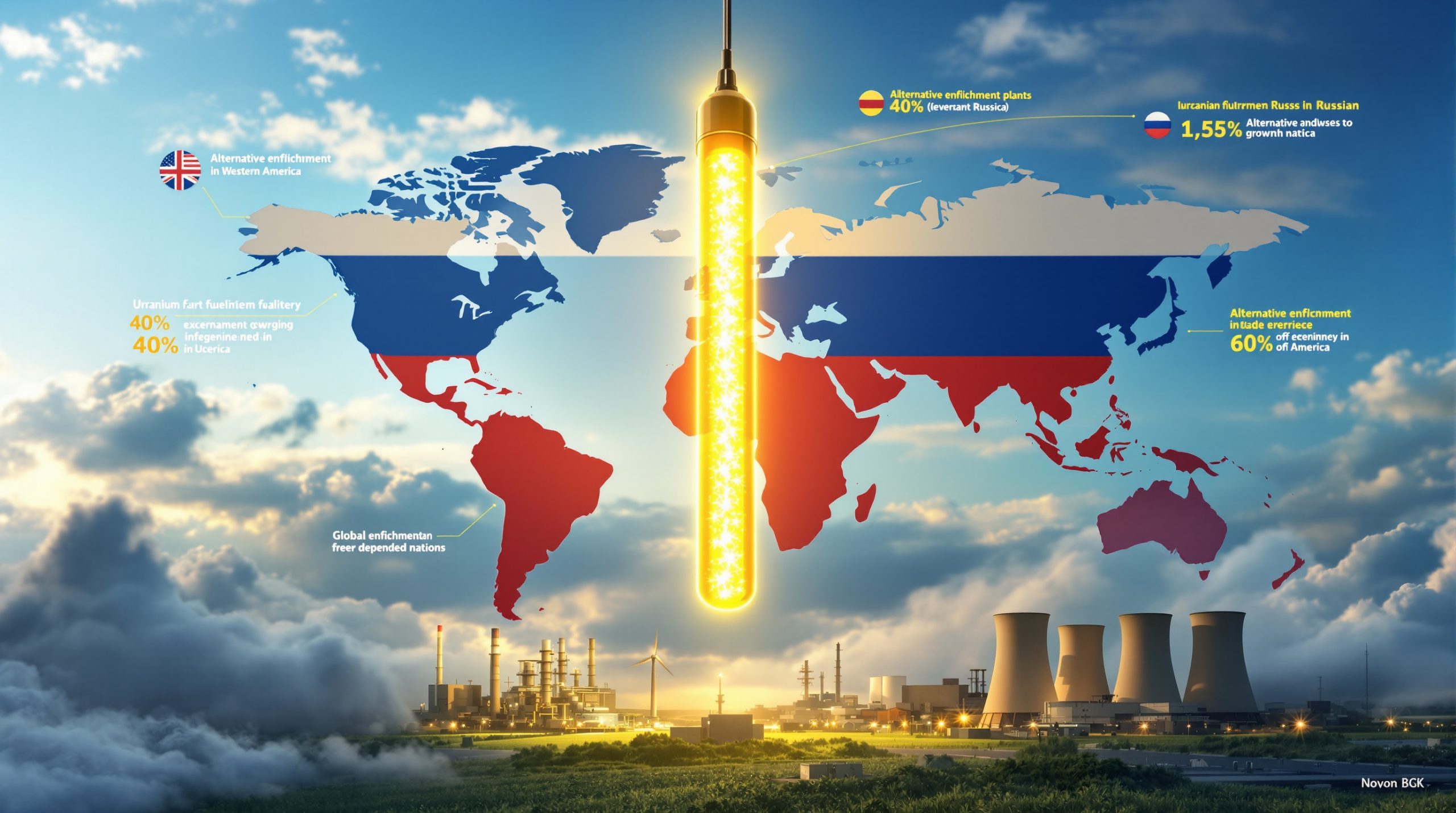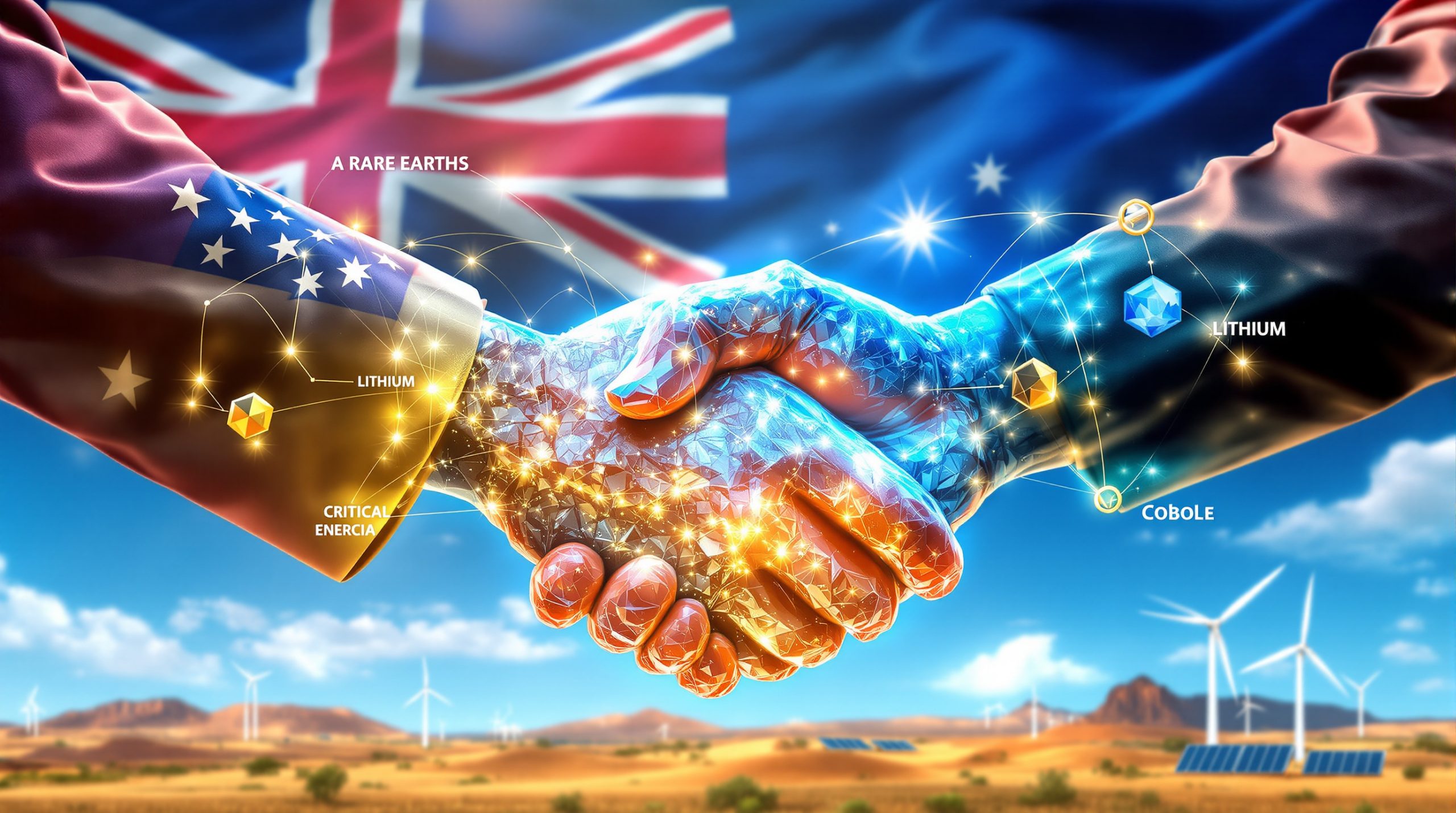Australia's First Cobalt Refinery: Cobalt Blue's Kwinana Project
The Australian battery materials landscape is undergoing a significant transformation with Cobalt Blue Holdings' groundbreaking Kwinana Cobalt Refinery project. Set to become Australia's first dedicated cobalt refining facility, this strategic development represents a critical step in establishing sovereign capability in the battery supply chain. While Australia has long been a significant producer of cobalt—generating approximately 5,100 tonnes in 2023—the country has historically exported 100% of its unprocessed cobalt concentrates, missing substantial value-adding opportunities.
The refinery promises to reshape Australia's position in the global battery metals boom market, addressing a long-standing gap in domestic processing capabilities. With global demand for cobalt projected to reach 320,000 tonnes annually by 2030, primarily driven by electric vehicle battery production, the timing of this development could not be more strategic.
What is the Kwinana Cobalt Refinery Project?
The Kwinana Cobalt Refinery is positioned to become Australia's pioneering cobalt processing facility, producing high-quality, battery-grade cobalt sulphate for the global battery materials supply chain. Led by Cobalt Blue in partnership with Iwatani Australia, this strategic project aims to process critical battery metals from third-party feedstock and mixed hydroxide precipitate (MHP) from the Broken Hill cobalt project in New South Wales.
Located in Western Australia's premier industrial zone, the Kwinana Industrial Area, the refinery will benefit from established infrastructure and proximity to shipping facilities. The area currently hosts more than 45 industrial operations, including several lithium processing facilities, creating a developing battery materials hub.
Key Project Details
- Location: Kwinana, Western Australia, with access to port facilities and established industrial infrastructure
- Ownership structure: 70:30 joint venture between Cobalt Blue and Iwatani Australia
- Target FID date: December 31, 2025
- Engineering completion: 80% of detailed plant engineering already completed with Tetra Tech, well ahead of the industry average of 60% at this development stage
- Initial capacity: Phase 1 targets 4,000 tonnes per year of battery-grade cobalt sulphate
- Investment scale: Estimated capital expenditure of AUD 350 million
- Processing technology: Advanced hydrometallurgical process utilizing proprietary solvent extraction and crystallization technologies
The refinery's modular design is particularly noteworthy, allowing future scalability to potentially 16,000 tonnes per year, aligning with projected growth in the global battery market. This scalable approach provides significant flexibility to respond to market demands.
How is the Kwinana Cobalt Refinery Progressing?
Cobalt Blue has recently made significant progress by signing a binding pre-final investment decision consortium deed with Iwatani Australia. This agreement establishes the framework for advancing the project toward a final investment decision, with Cobalt Blue's CEO Joe Kaderavek noting that "the binding consortium deed de-risks the project by aligning stakeholders on technical and financial guardrails."
The partnership with Iwatani brings substantial credibility to the project. Iwatani Corporation has committed approximately AUD 105 million in equity pending Foreign Investment Review Board (FIRB) approval, demonstrating strong confidence in the project's viability. This follows Iwatani's pattern of strategic investments in Australian green mining revolution projects, including their AUD 200 million hydrogen infrastructure joint venture with Woodside Energy in 2023.
Pre-FID Agreement Conditions
- Cobalt Blue's samples must meet customer specifications with <5ppm impurities to satisfy ISO 9001 requirements
- Finalization of project-related agreements covering:
- Joint venture relationships and operational plans
- Feedstock supply and offtake arrangements
- Intellectual property licensing
- Completion of technical studies and independent due diligence reviews
- Agreement on a comprehensive financing plan
- Foreign Investment Review Board approval for Iwatani Australia's investment
The pre-FID phase has progressed remarkably well, with 80% of the detailed engineering already completed—significantly ahead of typical industry timelines. This advanced preparation reduces technical risk and positions the project favorably for the final investment decision.
Why is the Kwinana Cobalt Refinery Significant?
The establishment of Australia's first cobalt refinery represents a major milestone in the country's critical minerals strategy and positions Australia more competitively in the global battery supply chain. The refinery directly addresses a significant market gap, as Australia currently lacks domestic refining capability despite being the world's third-largest cobalt producer.
From an economic perspective, the value proposition is compelling. Current estimates suggest that processing cobalt domestically could increase its value from approximately AUD 8,000 per tonne for raw concentrate to AUD 25,000 per tonne for refined cobalt sulphate—a threefold increase in value capture within Australia.
Strategic Importance
- Addresses a significant market gap among Australia's critical minerals partners
- Supports Australia's Critical Minerals Strategy implementation, which aims to capture 30% of global processing for cobalt by 2035
- Enhances domestic processing capabilities for battery materials
- Reduces reliance on overseas processing facilities, potentially decreasing dependence on Chinese refining by 7% in its first phase
- Creates a more resilient supply chain for battery materials
- Offers ESG advantages with Cobalt Blue claiming a 40% lower carbon footprint compared to Chinese refineries due to renewable energy integration
The project also aligns with growing international concerns about critical minerals shortages and supply chain security. With China currently refining approximately 80% of the world's cobalt, the Kwinana facility represents an important step toward diversification of global refining capacity.
What Role Will the Refinery Play in the Battery Supply Chain?
The Kwinana Cobalt Refinery will transform raw cobalt materials into battery-grade cobalt sulphate, a crucial component for lithium-ion battery production. This high-purity material constitutes approximately 20% of NMC (nickel-manganese-cobalt) battery cathodes by weight and plays a critical role in battery performance.
The refinery's role extends beyond simply processing Australian-sourced cobalt. Its flexible design allows for processing various feedstock types, creating an important regional hub for battery material refining in the Asia-Pacific region.
Supply Chain Integration
- Processing capabilities for third-party feedstock from various global sources
- Processing of mixed hydroxide precipitate from the Broken Hill cobalt project, which features an average 0.8% cobalt grade
- Production of battery-grade cobalt sulphate meeting international specifications required by tier-one cell manufacturers
- Connection to global battery manufacturing supply chains, with ongoing offtake discussions with major players like LG Chem and Panasonic
The technical specifications of the refinery's output are particularly important. Battery manufacturers require extremely high-purity cobalt sulphate with less than 5ppm of impurities. Early pilot samples from Cobalt Blue's process have already met these exacting specifications, according to independent laboratory testing.
What Happens After the Final Investment Decision?
Following a positive FID, expected by the end of 2025, Cobalt Blue and Iwatani Australia will form their incorporated 70:30 joint venture to move forward with construction and operation of the refinery.
The post-FID phase will involve a comprehensive construction program estimated to take 18-24 months, with commissioning targeted for late 2027. This timeline aligns with the projected acceleration in global demand for battery materials as electric vehicle adoption continues to grow worldwide.
Post-FID Implementation
- Formation of the formal joint venture structure
- Selection of EPC contractors with specialized experience in modular construction
- Construction and commissioning of the refinery
- Implementation of operational plans, including the creation of 150+ direct jobs
- Execution of feedstock supply and product offtake agreements
- Community engagement, including Native Title agreements with local Indigenous groups
The construction approach will utilize modular design principles to minimize on-site construction requirements and reduce the overall project timeline. This methodology has proven successful in similar resource processing facilities in Western Australia's industrial zones.
How Does the Refinery Compare to Global Standards?
The Kwinana refinery will implement world-class processing technologies that place it at the forefront of cobalt refining globally. The facility's environmental footprint represents a significant improvement over many existing cobalt refineries, particularly those in regions with coal-dominated electricity grids.
Western Australia's increasing renewable energy penetration will contribute to the facility's sustainability credentials, with Cobalt Blue estimating a 40% lower carbon intensity compared to equivalent Chinese facilities. This environmental advantage aligns with growing ESG in mining concerns and could become increasingly important as battery manufacturers face growing pressure to reduce the carbon footprint of their supply chains.
The refinery's technological approach also promises higher recovery rates and lower waste generation than conventional cobalt processing methods. The hydrometallurgical process developed for the facility focuses on maximizing metal recovery while minimizing reagent consumption and waste generation.
FAQ About the Kwinana Cobalt Refinery
What is cobalt sulphate and why is it important?
Cobalt sulphate is a refined form of cobalt used in lithium-ion battery cathodes. It helps improve battery energy density, cycle life, and thermal stability, making it a critical component in electric vehicle and energy storage batteries. Battery-grade cobalt sulphate must meet exacting purity standards, typically containing less than 5ppm of impurities to ensure optimal battery performance and longevity.
How does this project align with Australia's critical minerals strategy?
The Kwinana Cobalt Refinery directly supports Australia's goal of moving up the value chain by processing critical minerals domestically rather than exporting raw materials, creating more economic value and jobs within Australia. The federal government's Critical Minerals Strategy specifically targets capturing 30% of global processing for cobalt by 2035, making this project a flagship initiative in this national strategic framework.
What impact will this refinery have on the global cobalt market?
As the first cobalt refinery in Australia, this facility will diversify global cobalt processing capacity, which is currently dominated by China (80% market share). This helps create more resilient supply chains for battery manufacturers and automotive companies seeking to reduce geographic concentration risk in their supply chains. The refinery's initial 4,000 tonnes per year capacity could reduce dependence on Chinese refining by approximately 7% in its first phase.
What is the significance of the partnership with Iwatani Australia?
The partnership with Iwatani, a major Japanese industrial gas company with over 120 global industrial facilities, brings additional technical expertise, market connections, and capital to the project while strengthening Australia-Japan cooperation in critical minerals. This relationship aligns with the broader Australia-Japan Critical Minerals Partnership, which has committed over $2 billion to developing secure supply chains for battery materials between the two nations.
What are the economic benefits of the project?
Beyond the estimated 150+ direct operational jobs, the refinery represents significant value addition within Australia. By processing cobalt domestically, the value increases from approximately AUD 8,000 per tonne for raw concentrate to AUD 25,000 per tonne for refined product. With cobalt sulphate prices ranging between USD 15,000-20,000 per tonne (Q1 2025 projections), the refinery could generate substantial export revenue while creating downstream opportunities in Australia's emerging mining 4.0 innovation ecosystem.
Want to Capitalise on Major Mineral Discoveries Before the Market?
Discover how significant mineral discoveries like Cobalt Blue's Kwinana project can generate substantial returns for early investors by exploring Discovery Alert's proprietary Discovery IQ model at discoveryalert.com.au/discoveries/, which provides instant alerts on ASX announcements to give you a powerful market advantage.




